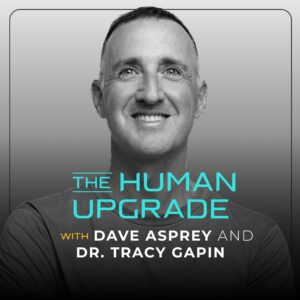It’s pretty likely that words like Keto, Paleo, Whole30, and juice cleanses are a part of your consciousness at this point – and you may even have tried a few (or more) of these diet trends to varying degrees of success.
To say they’re a fad is not an understatement. Although diet and nutrition trends have come and gone since what seems like the beginning of time, some of them become so trendy that the buzz alone makes them a fad.
The Atkins Diet of the 90’s morphed into the Paleo diet of the 2000’s, and now it’s all about Keto. What’s next? Who knows. The point is that at any given time, diet fads are part of the landscape.
They’re popular, they’re current, and they’re everywhere. There’s an endless supply of relevant apps for your phone to learn, track, or otherwise engage with the fad. Meal kits and various accessories or equipment round it out with a whole set of gadgets that help you feel like you’ve really taken ownership of the new regimen.
If you want to lose weight, build muscle, get better sleep, or increase endurance and performance, there’s little doubt that you’ve taken a look at how you can do that through diet. Managing larger issues like chronic inflammation, stress, and mental health might also have you reaching for diet tips to implement. After all, what goes into your body can really make or break you.
The real question: Just because it’s popular, does that mean it’s for you?
Diets – Especially of the Fad Variety – Are Not One-Size-Fits-All.
“Why am I not losing weight?”
“What is disrupting my sleep?”
“I am now eating a lot of meat and fats – is this going to hurt me in the long run?”
“How do I diet properly?”
These are all valid questions.
What works for your co-worker, your brother or your neighbor may not necessarily work for you, and vice-versa. He might have turned out lean and defined, while you ended up with a new level of fatigue and restlessness. Or you might’ve gotten great results, but he developed increased blood pressure rates and dizziness.
But why?
The efficacy of any nutritional regimen is entirely dependent on your own unique genetic composition and lifestyle. The answer lies in your own unique DNA. In short, we have to look at it through the lens of Epigenetics to know whether or not the latest diet fad is actually going to help YOUR body.
Let’s take a closer look at diet fads and why they may (or may not) be working for you.
Three Current Fad Diets

- The Ketogenic Diet: High-fat, low-carb keto diet has brought on some dramatic weight loss in some people. The basis for ‘Keto’ is a substantial cut in your carb intake, which forces your body into a state of ketosis so that it burns fat (rather than carbohydrates) for energy. With the keto diet, about 80% of your daily caloric intake comes from fat, like nuts, oil, avocado and 10% of your calories will come from carbs. This means that bread, pasta, fruits, oats, and starchy vegetables are off-limits.
- The Paleo Diet: Similar to Keto, the “caveman diet” does have some key differences. Paleo fans extol the virtues of eliminating gluten to reduce the inflammation that has been linked to such diseases as cancer, diabetes, arthritis and more. Processed foods (like refined carbs and soda) have been linked to damaging inflammation too, so those are also out.
- Whole30: This particular diet was developed as an elimination technique in order to discover which foods cause you problems. For 30 days, eat nothing but fruits, vegetables, nuts and meat. After those 30 days, you’re supposed to notice a major difference. Re-introducing foods one at a time to uncover what works and what doesn’t is a gamble, but it does bring a lot of direct awareness to the impact of what goes into the body.
Why Fad Diets are so Tempting

Taking interest in a diet fad is, in and of itself, not an entirely bad thing.
It shows that you’re ready to own your health, and a willingness to be in the driver’s seat to make true change. If you’ve managed to adhere to a new regimen – like keto – you’ve had to make deliberate choices that eliminate favorites from your meals (bye bye, pasta!) that require clear discipline.
Those are good qualities.
Assuming control of your health through nutrition is a very tangible way to feel like you’re doing something constructive to bring about change. These adjustments indicate that you’re willing and able to apply an idea and bring it into your daily life.
Science, nutrition, and exercise are constantly evolving as technology improves and we have new ways to visualize or study the body and brain. On the surface, the fact that a diet fad might be on the tip of everyone’s tongue does not immediately mean that it’s bad.
But is it right for YOU?
Whether the latest diet craze works for you has less to do with what’s popular and everything to do with your own unique genetic blueprint.
How Your DNA Impacts the Way Diets Work (Or Not)

Would you get on a boat and simply sail east, with no map, no account for the weather, and a random assortment of equipment that may or may not be what you need? Probably not!
Setting yourself up for success means having a map, and interpreting the map to actively navigate to your destination. Otherwise, you’re just sailing into the dark and hoping for the best. Maybe you make it, maybe you don’t. Sound smart? Not really.
The map is found in the specific information found in your DNA.
Every part of your genetic function is embedded in the genetic codes contained in DNA strands.
Epigenetics is the science of how DNA interacts with our lifestyle – how we eat, breathe, move, even how we think. It involves changing the expression of the code, through chemical modifications as a result of lifestyle. Because lifestyle alterations like diet, exercise, sleep, and mindset are controllable, we actually have the power to turn genes on and off to influence health, vitality and longevity.
In turn, the genetic codes contained in DNA can also indicate markers for potential illnesses such as Alzheimer’s, cardiovascular disease and multiple forms of cancer. And, one gene does not equal one outcome.
Nutrition can have a Tremendous Influence on the Expression of these Genetic Codes.
A Ketogenic diet – high in fats, low in carbs – can pose an increased risk of disease for people who carry a certain mix of genetic code. Increased saturated fat intake can be very problematic, and the state of ketosis can be unnecessarily taxing on the internal organs in some individuals.
In addition, the Ketogenic diet is both high in saturated animal fats and low in protective antioxidants from plant sources. These antioxidants protect organs such as the heart, further increasing an individual’s risk of developing this disease.
But that’s just one small example – any restrictive diet needs to be analyzed with respect to your own DNA coding in order to evaluate its benefits and risks. Any time a particular food group is either added or removed, it creates a situation where nutrients are being depleted, some of which are going to have a prominent effect on your entire system.
You can’t just guess and hope it’s going to be good, because it could have negative effects.

Genetics play a huge role in determining your individual response to fats in your diet. For example, your APOA5 gene indicates how well your body responds to polyunsaturated fats. And knowing your APOE4 gene is critical to understand your risk of vascular disease and Alzheimers Disease with intake of saturated fats. And, these are just a few gene examples.
Bottom Line
If you want to achieve your diet goals without inadvertently increasing your risk for disease, gastrointestinal discomfort, weight gain – or other issues – you need to take the guesswork out of the equation.
If you want to hit your target when adopting a new diet, it’s time to get it right from the start by looking at the very building blocks that make you who you are in the first place.
Don’t wait to make your efforts count. Find out how to leverage your genetic blueprint for total optimization of your human potential today.
MALE 2.0 is for any man who is tired of settling for subpar energy and performance…who is ready to optimize his brain function, maximize energy, increase vitality, and tap into limitless, ageless health!
MALE 2.0 gives you the actionable tools you need right now and reveals what you need to customize and design your future limitless self.
Tracy Gapin, MD is a board-certified Urologist, Men’s Health Expert, Author, and Professional Speaker. Using state-of-the-art biometric monitoring, nutrition and lifestyle intervention, Dr. Gapin coaches Fortune 500 executives and evolutionary leaders of business, sports medicine, and high performance. He specializes in cutting-edge precision medicine with an emphasis on epigenetics, providing men with a personalized path to optimizing health & performance.
Click here to learn more about the lifelong benefits of a personalized genetics consultation and epigenetic coaching program.
Want more tips to optimize your health?
Listen to the latest podcasts. Click HERE
I look forward to hearing from you. I would enjoy working together with you to take your diet goals to the next level so that you can get it right from the start.









